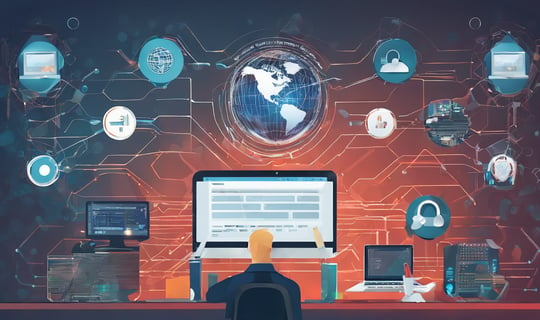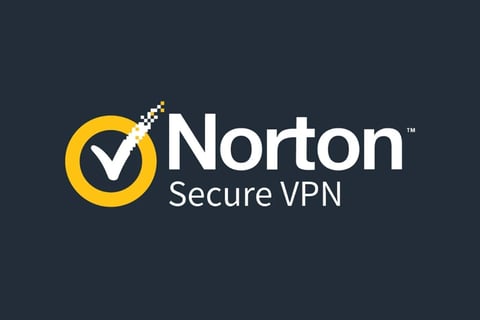Navigating the Digital Maze: Understanding VPNs and Cyber Security
A look at how Navigating the Digital Maze can help with Understanding VPNs and Cyber Security.
In an era where our lives are increasingly intertwined with technology, the importance of cybersecurity cannot be overstated. Every day, we navigate a digital landscape fraught with risks, from malicious hackers to data breaches. But fear not, for amidst this digital chaos, there exists a beacon of hope: virtual private networks, or VPNs. In this comprehensive guide, we'll delve into the world of VPNs and cyber security, equipping you with the knowledge and tools needed to safeguard your digital life.
Protect your digital fortress with NortonVPN today!
Understanding Cyber Security
Cyber security, simply put, is the practice of protecting digital systems, networks, and data from unauthorized access or attacks. It encompasses a wide range of measures, from implementing robust passwords to deploying sophisticated encryption protocols. In today's interconnected world, cyber threats come in many forms, including malware, phishing scams, and ransomware attacks. These threats can have devastating consequences, ranging from financial loss to irreparable damage to one's reputation.
Introduction to Virtual Private Networks (VPNs)
At its core, a VPN is a technology that creates a secure, encrypted connection over the internet. By routing your internet traffic through a remote server and encrypting it along the way, a VPN effectively shields your online activities from prying eyes. This not only enhances your privacy but also adds an extra layer of security, making it much harder for hackers to intercept your data. VPNs are particularly useful when accessing public Wi-Fi networks, which are notoriously insecure and vulnerable to cyber attacks.
The Role of VPNs in Cyber Security
One of the primary benefits of using a VPN is its ability to mitigate common cyber threats. By encrypting your internet traffic, a VPN ensures that your sensitive information remains secure, even when transmitted over unsecured networks. This is especially important for young adults, who are often the targets of cyber criminals due to their frequent use of social media and online banking services. With a VPN, you can browse the web with peace of mind, knowing that your personal data is safe from prying eyes.
NortonVPN, for example, offers a comprehensive suite of security features, including military-grade encryption, automatic Wi-Fi protection, and a strict no-logs policy. With NortonVPN, you can enjoy fast, reliable protection on all your devices, whether you're at home or on the go.
Best Practices for Using VPNs
When it comes to using a VPN, there are a few best practices to keep in mind. First and foremost, it's important to choose a reputable VPN provider with a proven track record of reliability and security. Look for providers that offer strong encryption protocols, a wide range of server locations, and a user-friendly interface. Additionally, be sure to keep your VPN software up to date to ensure that you're protected against the latest threats.
Setting up and configuring a VPN is typically a straightforward process, thanks to user-friendly apps and intuitive interfaces. Once installed, simply choose a server location and connect to the VPN to encrypt your internet traffic and protect your online privacy. Remember to enable the VPN whenever you're accessing the internet, especially when using public Wi-Fi networks or conducting sensitive transactions online.
Browse anonymously and securely with a premium VPN service!
VPNs and Data Privacy
In addition to enhancing your security, VPNs also play a crucial role in preserving your data privacy. In today's digital age, our personal information is constantly at risk of being harvested and exploited by advertisers, data brokers, and other third parties. By encrypting your internet traffic and masking your IP address, a VPN helps shield your online activities from prying eyes, ensuring that your personal data remains private and secure.
However, it's important to note that VPNs are not a silver bullet solution to all privacy concerns. While they can certainly help protect your online privacy, they are not foolproof, and there are still steps you can take to further enhance your privacy online. This includes using strong, unique passwords for each online account, enabling two-factor authentication whenever possible, and being cautious about the information you share online.
Future Trends in VPNs and Cyber Security
Looking ahead, the future of VPNs and cyber security is promising, with continued advancements in technology and innovation. As the threat landscape evolves and becomes increasingly sophisticated, VPN providers will continue to develop new tools and techniques to stay one step ahead of cyber criminals. From improved encryption algorithms to enhanced privacy features, the next generation of VPNs promises to deliver even greater security and peace of mind for users.
In conclusion, VPNs are a powerful tool for enhancing both your security and privacy online. Whether you're browsing the web, streaming your favorite shows, or conducting business online, a VPN offers an extra layer of protection against cyber threats and data breaches. By following best practices and choosing a reputable VPN provider like NortonVPN, you can enjoy fast, reliable protection on all your devices, keeping your digital life safe and secure. So why wait? Take control of your online security today with a VPN.






